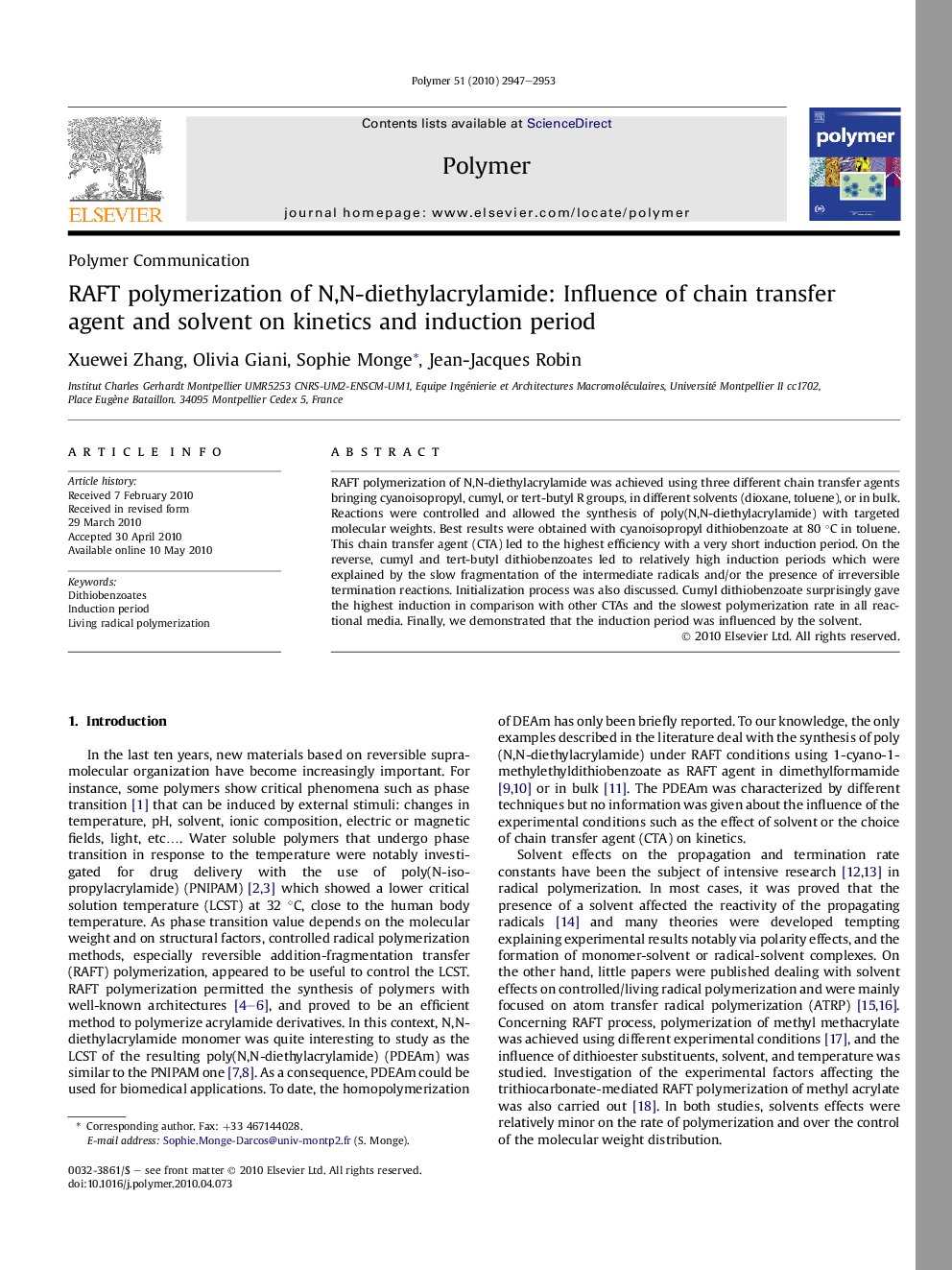| Article ID | Journal | Published Year | Pages | File Type |
|---|---|---|---|---|
| 5184213 | Polymer | 2010 | 7 Pages |
RAFT polymerization of N,N-diethylacrylamide was achieved using three different chain transfer agents bringing cyanoisopropyl, cumyl, or tert-butyl R groups, in different solvents (dioxane, toluene), or in bulk. Reactions were controlled and allowed the synthesis of poly(N,N-diethylacrylamide) with targeted molecular weights. Best results were obtained with cyanoisopropyl dithiobenzoate at 80 °C in toluene. This chain transfer agent (CTA) led to the highest efficiency with a very short induction period. On the reverse, cumyl and tert-butyl dithiobenzoates led to relatively high induction periods which were explained by the slow fragmentation of the intermediate radicals and/or the presence of irreversible termination reactions. Initialization process was also discussed. Cumyl dithiobenzoate surprisingly gave the highest induction in comparison with other CTAs and the slowest polymerization rate in all reactional media. Finally, we demonstrated that the induction period was influenced by the solvent.
Graphical abstractDownload full-size image
